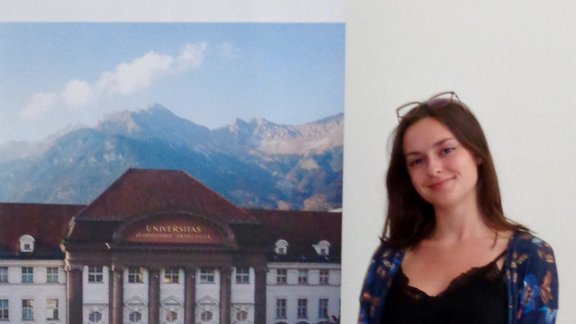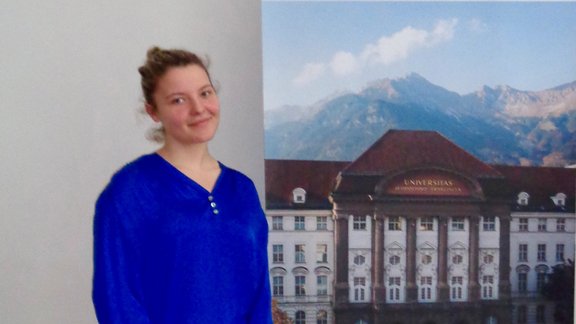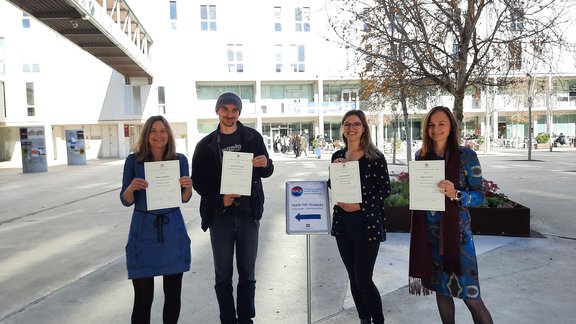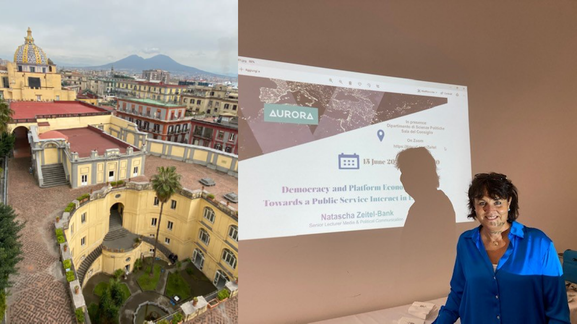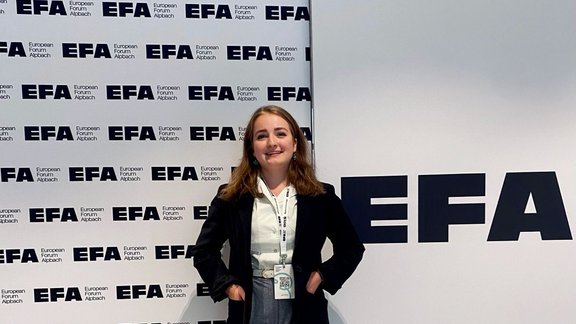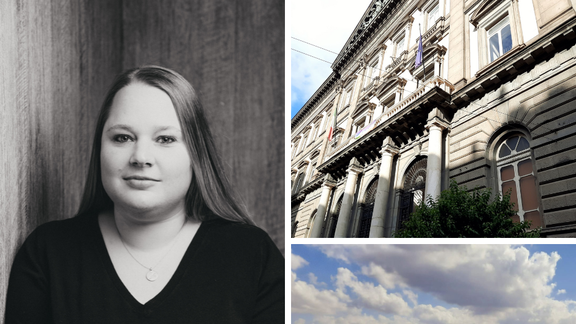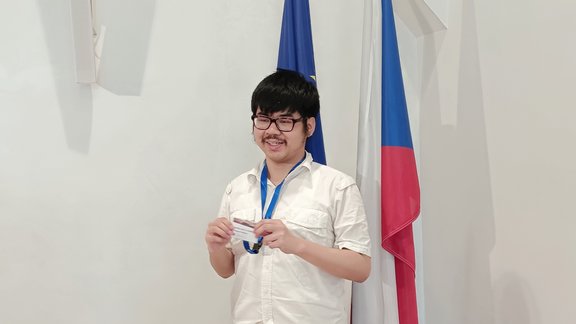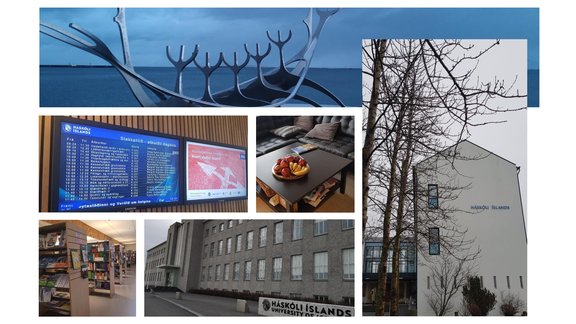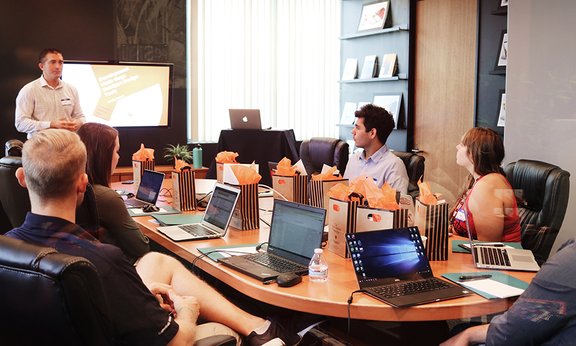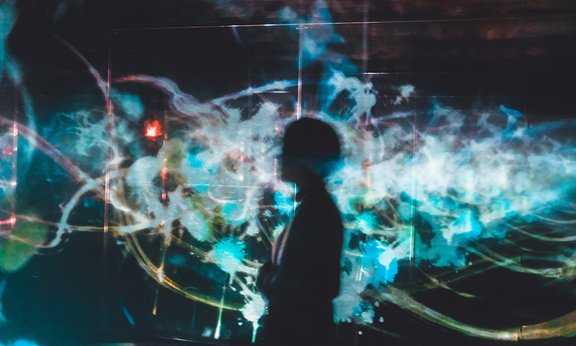
Als Mitglied des europäischen Universitätsnetzwerks Aurora setzt die Universität Innsbruck auf intensive Kooperationen mit ausgewählten Partnern von Reykjavik bis Neapel. Von dieser Zusammenarbeit profitieren sowohl Studierende, Wissenschaftler:innen als auch Verwaltungsmitarbeiter:innen.
Mit der Bewilligung einer Aurora European Universities Allianz durch die Europäische Kommission wurden die gemeinsamen Aktivitäten im Sommer 2020 auf eine neue Ebene gehoben. Auf dieser Seite finden Sie alle relevanten Informationen und Möglichkeiten der Mitwirkung an der Universität Innsbruck. Besuchen Sie auch die allianzweite Aurora Webseite für weitere Informationen.



Aurora auf einen Blick für
Aurora: Mit Studierenden – Für Studierende
Internationale Erfahrungen sind essentieller Bestandteil eines Universitätsstudiums und weiten den Horizont. Aurora bietet für Studierende unterschiedliche Möglichkeiten, diese internationalen Erfahrungen zu sammeln sowie selbst aktiv mitzugestalten.
Dazu zählen etwa Mobilitätsformate in unterschiedlichen Settings – wie internationale (virtuelle) Lehrveranstaltungen und Summer Schools, aber auch ein klassisches Auslandssemester – oder Vernetzungsaktivitäten innerhalb und zwischen den einzelnen Universitätsstandorten, wie sie etwa die Aurora Student Schemes bieten. Durch Mittel der Europäischen Kommission, des OeAD und der Universität Innsbruck stehen hierzu auch vielfältige Fördermöglichkeiten zur Verfügung.
Aurora: Ein Netzwerk für alle Mitarbeiter:innen
Internationale Kollaborationen sowie Austausch basieren auf vertrauensvollen Verbindungen. Aurora als ein Netzwerk von eng kooperierenden Universitäten bietet diesen Rahmen und steht für neue Möglichkeiten bei gleichzeitig administrativ einfachen Wegen.
Sowohl für Wissenschaftler:innen als auch Mitarbeiter:innen der Verwaltung werden entlang von konkreten Herausforderungsbereichen kontinuierlich neue Formate und Angebote entwickelt, Fördermöglichkeiten für den (wissenschaftlichen) Austausch und die Lehreentwicklung ausgelobt, als auch konkrete Ergebnisse der Aurora Kooperationen in Form von Handreichungen zur Verfügung gestellt. Durch Mittel der Europäischen Kommission, des OeAD und der Universität Innsbruck stehen für all diese Aktivitäten auch vielfältige Fördermöglichkeiten zur Verfügung.
Aktivitäten
Okt
25
3MT Competition: Aurora Course "Rising Voices: Emerging Scholars' Forum" | Audimax, Ágnes-Heller-Haus
Live-Stream: https://webconference.uibk.ac.at/rooms/pgi-fqb-u9z
About Aurora
Anmeldung zum Aurora Newsletter
Aurora News

3MT Presentations: Aurora Course "Rising Voices: Emerging Scholars' Forum"
Join us on 25 October 2024 to celebrate Aurora international students as they present their findings from the “Rising Voices: Emerging Scholars' Forum.” Using the engaging 3MT (Three Minute Thesis) format, participants will communicate their complex ideas clearly and concisely in just three minutes with a single visual slide.

Projekte erhalten Aurora Seed Funding
Im Februar 2024 startete der erste Aurora Call für Incentive and Collaborative Research Projects, bei dem vier Projekte unter Beteiligung der Universität Innsbruck in die Endauswahl gelangten und nun ein Seed Funding zur Anbahnung von Forschungskooperationen erhalten.

Werde Aurora Student Ambassador im Studienjahr 2024/25 – jetzt anmelden!
Zum Start des neuen Semesters öffnet Aurora wieder die Türen für das Aurora Student Ambassador Programm und sucht motivierte Studierende, die sich für das Studienjahr 2024/25 engagieren möchten.

BIP: Linguistic Diversity, Intercultural Competences & European Identity
Attention Bachelor’s, Master’s, and PhD students in Education, Humanities, or Social Sciences! Join us as four Aurora Universities, located in diverse regions across Europe, come together with a shared mission: to explore and learn about linguistic diversity and innovative pedagogical approaches inspired by plurilingualism. Don’t miss this opportunity to be part of an exciting initiative!
University Newsroom

Projekte erhalten Aurora Seed Funding
Im Februar 2024 startete der erste Aurora Call für Incentive and Collaborative Research Projects, bei dem vier Projekte unter Beteiligung der Universität Innsbruck in die Endauswahl gelangten und nun ein Seed Funding zur Anbahnung von Forschungskooperationen erhalten.

Austausch mit AURORA-Kolleginnen zur Familienfreundlichkeit
Seit 2020 ist die Universität Innsbruck im Rahmen der Aurora Alliance Teil eines europäischen Netzwerks der „Hochschulen der Zukunft“. Im Fokus steht die Zusammenarbeit der Hochschulen in den Bereichen Lehre, Forschung und Verwaltung. Am 3. September tauschten sich Kolleginnen des HR-Departments der Universität Olmütz mit Vertreterinnen des Büros für Gleichstellung und Gender Studies zu Vereinbarkeitsthemen aus.
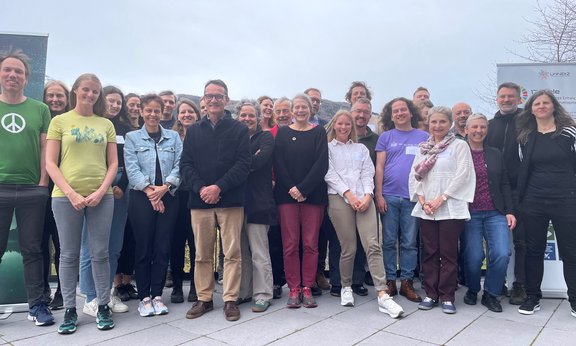
Nachhaltige interdisziplinäre Lehr- und Lernkonzepte
Vom 3. bis zum 5. April 2024 fand eine vom Rektorat, dem Aurora European University Office Innsbruck und UniNEtZ entwickelte Peer Learning Activity (PLA) zum Thema „Bildung für nachhaltige Entwicklung (BNE)“ statt.
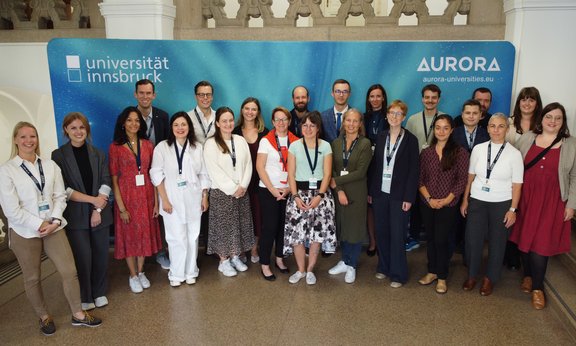
Staff Week bringt Aurora Partner nach Innsbruck
Gemeinsam mehr bewegen: Unter diesem Motto wurde die erste Aurora Staff Week organisiert, die von 2. bis zum 6. Oktober an der Universität Innsbruck stattfand. Dabei tauschten sich Teilnehmer:innen aus Wissenschaft und Verwaltung von Reykjavik bis Neapel mit Kolleg:innen der Universität Innsbruck aus, um neue Aktivitäten und Projekte zu entwickeln.
Aurora Partneruniversitäten
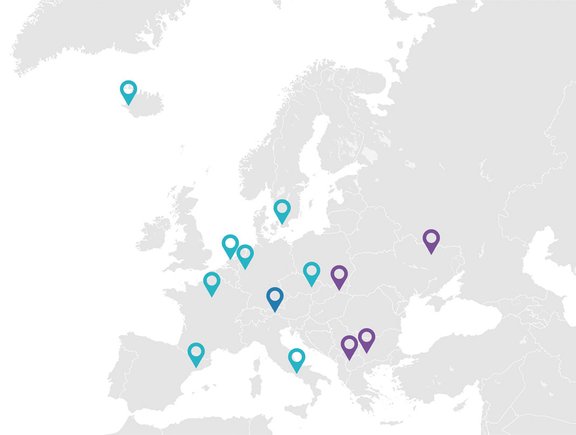
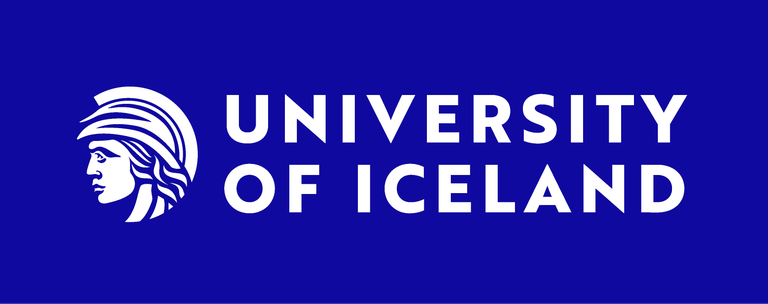
The University of Iceland, founded in 1911, is a progressive comprehensive research university, situated in the heart of Reykjavik, the capital of Iceland. Great emphasis is placed on strengthening research and educating young people, preparing them for taking an active part in society as well as making their mark on the global community. The University of Iceland is ranked no. 201-250 by the Times Higher Education World University Rankings. Currently some 13,300 students are enrolled at the University, including over 1,100 international students. The University of Iceland comprises five schools and 25 faculties offering over four hundred different programmes of study in all major academic disciplines, The University employs a large number of highly qualified academics who are a part of a strong global network within the scientific community. Dynamic and extensive collaboration with research institutions and industry is an important factor in the University’s operations.

The VU is a comprehensive research university, founded in 1880 and aims to contribute to a better world. A world in which justice, humanity, and responsibility for each other and for the world, are central. The VU is ambitious in scientific research and education and encourages free and open communication of ideas. Our university values academic freedom and independence. This independence is reflected in our name Vrije Universiteit; free from church, state and commercial interests. We are committed to delivering Academic Value by developing academic character, embracing diversity and our orientation towards society.
Located at the VU Campus in the heart of the Amsterdam business district, the VU houses 10 faculties, has approximately 23.000 students of which 3.000 international students, 4.500 staff and offers around 70 international programmes. Our education and research are clustered around four interdisciplinary research themes: Governance for Society, Human Health and Life Sciences, Connected World and Science for Sustainability.

The Universitat Rovira i Virgili (URV) was created in 1991 by the Parliament of Catalonia. From the very first day, the university’s aim has been apparent: to place knowledge at the service of society to contribute to the social and economic development of the surrounding area, as it gradually transforms over time.
Located approximately 100 km south-west of Barcelona on the Mediterranean coast of Catalonia, the URV trains future professionals under the precepts of European harmonization, as a way of opening doors to a world of work without frontiers. With this aim, we currently provide over 130 different programmes of study in all areas of knowledge and at all levels, courses which are now enjoyed by over 14,000 students, with 34% of our 2,700 postgraduate students being international. The university has a staff of 2,900 members.
The special emphasis that the URV places on research allows it to play a leading role in regional development, especially in those areas that are closely linked to the region’s economic strengths: namely, Chemistry, Energy and New Materials, Nutrition and Health, Wine-making, Tourism, Housing, Heritage and Culture, ICT & Digital Economy.

Founded in 2003 by merger of two universities in the cities Duisburg and Essen, we are one of the youngest universities in Germany. Located at the heart of the Ruhr metropolis, our university is like our region: dynamic, ambitious, and ever changing.
In our eleven faculties and four interdisciplinary research clusters – Nano sciences, Biomedical Sciences, Urban Systems, and Transformation of Contemporary Societies – our scientists develop ideas with a future. We deliberately interlock research and teaching as closely as we can to promote exchange of knowledge and perspectives.
At our two campuses at Duisburg and Essen and our university medical center, you meet 42,000 students from more than 130 countries. We embrace diversity and strongly support exchange and collaboration, both regionally – as with our neighboring universities.
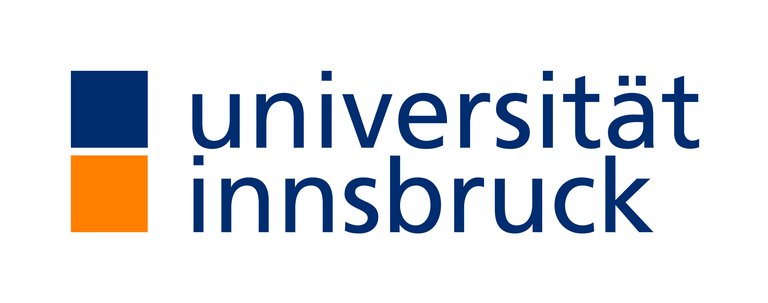
Founded in 1669, Universität Innsbruck is the largest research and education institution in western Austria, with more than 27,000 students and 5,000 staff and faculty members. Located in the heart of the Alps, Universität Innsbruck is a research university comprising sixteen faculties and 81 departments. Its research activities are organised along with six main research areas, namely physics, mountain regions, cultural encounters – cultural conflicts, scientific computing, molecular biosciences and digital sciences. Furthermore, four interdisciplinary research platforms and 46 research centres shape our research profile, organised in a structure designed to promote inter- and transdisciplinary collaboration among our staff.
International higher education rankings regularly prove that Universität Innsbruck plays a distinguished role as an education and research institution in the European higher education area and enjoys an outstanding reputation in many fields of research. Universität Innsbruck strongly believes that the knowledge it generates is not only meant for the few but should benefit society as a whole.

Copenhagen Business School (CBS) was established in 1917. Today, with 20,000 students and 1,500 employees, CBS is one of the largest business schools in Europe and one of the 8 Danish universities
CBS is Denmark’s largest educational and research institution within business administration and economics in a wide sense. The university is committed to providing business-related education programmes and continuing education for the public and, in particular, the private sector.
CBS is committed to communicating knowledge and new ideas to tomorrow’s business leaders and society in general. Its main contribution in this field is research and research-based education, and investment in research and high academic standards is therefore crucial to CBS’ contribution to society.

Founded by the emperor of the Holy Roman Empire Frederick II in 1224, the University Federico II is the world’s oldest state-supported institution of Higher Education and Research. Based in Naples, the University is rooted in a challenging and lively socio-economic context and aims at bridging southern Italy to the global scientific community. The University Federico II committed to its public mission, and its laic and pluralistic vocation, supports the independence, openness and inclusivity of teaching, learning and research.
As a comprehensive public university, Federico II offers high-quality courses in all academic disciplines, at all levels, allowing its students to pursue both intellectual development and the acquisition of professional skills. Federico II is also committed to quality research, societal impact and community engagement. The development of interdisciplinary and innovative teaching, learning and research are, therefore, among its priorities.
At Federico II, fundamental and curiosity-driven research as well as applied and out-put oriented researchers are highly praised, placing the University among the most active Higher Education and Research Italian and European institutions.
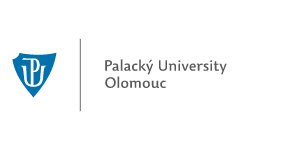
Palacký University Olomouc is a university with a long-standing tradition. Founded in the 16th century, it is the oldest university in Moravia and the second-oldest university in the Czech Republic.
Today it is a modern higher education facility with a wide range of study programmes and copious scientific and research activities. In 2019, more than 22,000 students studied in accredited study programmes, exchange programmes and lifelong learning programmes at eight faculties. Palacký University Olomouc is one of the very top Czech universities, and ranks among the best universities in the world, according to international rankings.
The mission of the University is to promote the involvement of students in all areas of research, to cultivate their critical and creative thinking, and to provide high-quality university education in a broad range of natural, medical, and social sciences and humanities on the Bachelor’s, Master’s, and Doctoral levels.
Our active partnership with both the regional community and the global community contributes to the development of the intellectual wealth of the society and its sustainable scientific, technological, cultural, and social development.

With 14 faculties, schools and institutes, 1 observatory and 33 research laboratories, Université Paris-Est Créteil has been active in all fields of knowledge since 1970. A major player in disseminating academic, scientific and technological knowledge, the university offers more than 350 training courses in all disciplines and levels.
Website
Assoziierte Partner

V. N. Karazin Kharkiv National University is a leading Ukrainian research and educational institution with a 215-year history. In the «Top-200 Ukraine» UNESCO Chair Ranking in 2019, the University ranked third among all Ukrainian institutions of higher education. According to the annual QS World University Rankings 2020, Karazin University is included in the Top 500 universities in the world. The University ranks 491st, which is the highest position compared to other Ukrainian universities.

Founded in 1994, the University of Tetova welcomes and is open to all the students, teachers and collaborators. It welcomes individuals who possess intellectual and moral qualities, which they can apply in an academic climate of clearly defined institutional autonomy and academic freedom, to contribute to the development of education, science and professional development at the university.

The South-West University “Neofit Rilski” was founded in 1976 in Blagoevgrad. With a history of over 40 years, the University has gained a reputation as a leader in the sphere of science and education in Bulgaria and on the Balkans. At present it is recognized as one of the forefront classical universities in South – Eastern Europe.

Pavol Jozef Šafárik University was established in 1959 as the second classical University in Slovakia. The current structure of P. J. Šafárik University includes five faculties – Faculty of Medicine, Faculty of Science, Faculty of Law, Faculty of Public Administration and Faculty of Arts. At our University more than 7 500 students are studying.
Info
Kontakt
FAQ
Newsletter

